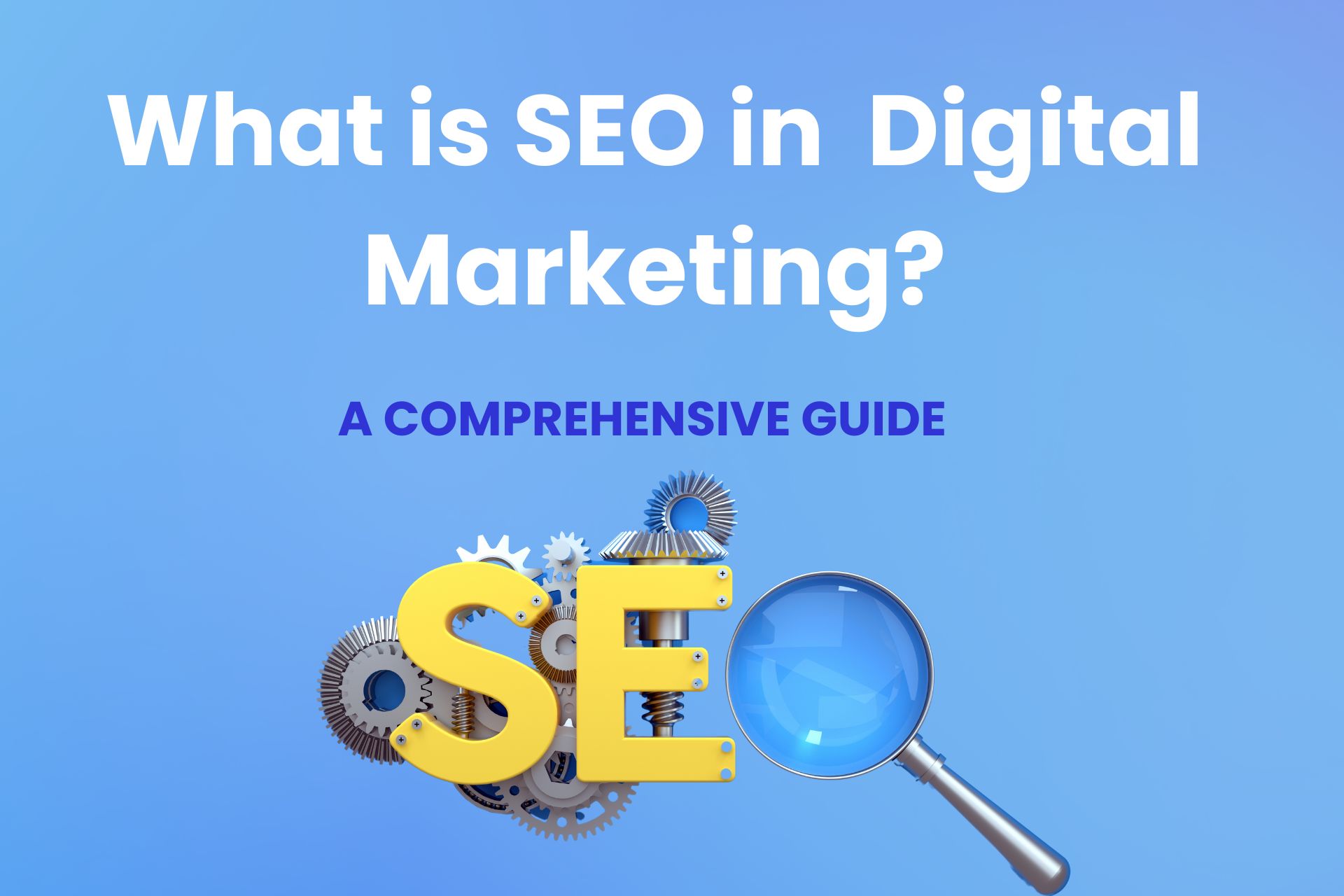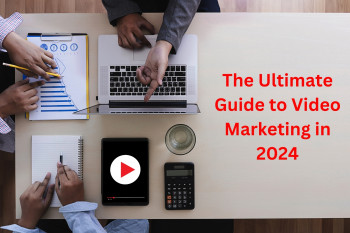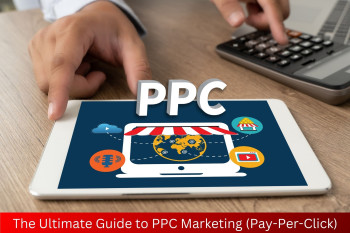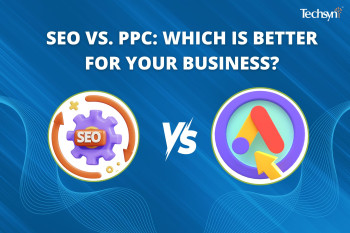SEO (Search Engine Optimization) plays a pivotal role in the success of any online business. But what exactly is SEO, and why does it matter? In this comprehensive guide, we will explore the fundamentals of SEO, its impact on organic search results, and how it can strategically be leveraged to drive traffic, increase visibility, and ultimately enhance the overall online presence of your brand.
What is SEO in Digital Marketing?
Search Engine Optimization, or SEO for short, is the process of enhancing the visibility of a website or web page in search engine results. It involves optimizing various elements of your online content to make it more appealing to search engines like Google, Bing, and Yahoo. SEO is not a one-time effort; it's an ongoing strategy that helps your website rank higher in search results, ultimately driving organic (non-paid) traffic.
The Role of Search Engines
Search engines are the digital gatekeepers of the internet. They tirelessly crawl and index billions of web pages, categorizing and ranking them based on relevance and quality. Think of them as the librarians of the internet, organizing the vast expanse of information for users seeking answers to their questions. SEO is all about understanding these algorithms and optimizing your website to gain favourable search engine rankings.
Why SEO Matters
SEO has emerged as an indispensable aspect of digital marketing. With billions of online searches being conducted daily, businesses cannot afford to overlook the potential of search engines as a source of traffic. SEO allows businesses to tap into this vast pool of users actively seeking information, products, or services related to their industry, enabling them to gain a competitive edge and drive relevant traffic to their websites.
The Fundamentals of SEO
The Evolution of Search Engines
To truly grasp the essence of SEO, we must journey back in time and witness the evolution of search engines. From the humble beginnings of Yahoo and AltaVista to the dominant force that is Google today, search engines have continually refined their algorithms to provide users with the best possible search experience.
The Rise of Mobile Search
With the proliferation of smartphones, the way we search has evolved once again. Mobile search has become the norm, prompting search engines to prioritize mobile-friendly websites. As a result, responsive web design and mobile optimization have become integral aspects of SEO.
How Search Engines Work
Understanding how search engines operate is vital for effective SEO. The process can be broken down into three key steps: crawling, indexing, and ranking.
➔ Crawling
Search engine bots, also known as spiders or crawlers, traverse the web, following links from one page to another. They collect data about each page they encounter, including content, images, and meta information.
➔ Indexing
Once the data is collected, search engines store it in massive databases, creating an index of web pages. This index is the foundation of search results.
➔ Ranking
When a user enters a search query, the search engine's algorithm sifts through the index, determining the most relevant pages. These pages are then ranked based on factors such as keyword relevance, backlinks, and user experience.
The Importance of Keywords
Keywords are the foundation of SEO. They are the words and phrases that users type into search engines when looking for specific information. By conducting thorough keyword research and strategically incorporating relevant keywords into your website's content, you can increase its visibility and drive targeted organic traffic.
Types of SEO
Search Engine Optimization (SEO) is a multifaceted digital marketing strategy with various branches, each serving a unique purpose in improving a website's visibility on search engines. These branches include On-Page SEO, Off-Page SEO, Technical SEO, and Local SEO. In this section, we'll dig into each type, providing a comprehensive understanding of their roles in enhancing your online presence.
Must Read: A Comprehensive Guide to Why the Best SEO Services in Dubai Are Essential for Your Business
On-Page SEO
Crafting SEO-Friendly Content
Creating high-quality, informative, and engaging content is crucial for successful SEO. By producing content that satisfies the needs of your target audience and incorporates relevant keywords naturally, you can enhance your website's visibility and authority in search engine results.
Quality vs. Quantity
When it comes to content, quality should always take precedence over quantity. It is essential to focus on creating valuable and unique content that resonates with your audience, rather than producing a large quantity of mediocre content. Search engines prioritize websites with informative and comprehensive content that adds value to users.
The Power of Headings
Headings, such as H1, H2, and H3 tags, not only enhance the readability and structure of your content but also play a significant role in SEO. By utilizing proper heading hierarchy and incorporating relevant keywords in headings, you can improve the visibility and organization of your content in search engine results.
Keyword Placement
Strategic placement of keywords throughout your content is vital for SEO. Placing keywords in key areas such as titles, meta descriptions, subheadings, and within the body of the text helps search engines understand the relevance and context of your content.
Optimizing Meta Tags
Meta tags, including title tags and meta descriptions, provide concise information about your web pages to search engines and users. Optimizing these tags with relevant keywords and compelling descriptions can significantly impact your website's click-through rate and visibility in search results.
Header Tags (H1, H2, H3)
Header tags, specifically the H1 tag, carry significant weight in SEO. By using relevant keywords in your H1 heading, you can signal to search engines the main topic of your page, helping to improve its ranking in search results.
Image Optimization
Optimizing images on your website involves several factors, including alt text, file names, and image compression. By using descriptive alt text, relevant file names, and properly compressing images, you can enhance your website's visibility in image search results and improve overall user experience.
Internal Linking
Internal linking, also known as site linking, is an important SEO strategy that helps search engines identify, organize, and categorize your content. By creating internal links between relevant pages on your website, you can improve your content's overall readability and relevance. Internal linking usually involves the creation of hyperlinks between individual web pages, but can also include linking to internal pages within a single web page or between multiple web pages across your website. The goal of internal linking is to create a navigable map of your website, making it easier for users to navigate and find the right content.
Also Read: SEO for Startup Business
Off-Page SEO
Backlinks and Their Significance
Backlinks, or inbound links, are links from external websites that point to your website. Search engines consider backlinks as indicators of credibility and authority. The quality and quantity of backlinks play a vital role in determining your website's ranking in search results.
What Are Backlinks?
Backlinks serve as virtual endorsements for your website. They represent votes of confidence from other websites, signalling to search engines the trustworthiness and relevance of your content. When reputable websites link back to your pages, it increases your website's authority and improves its ranking in search results.
Types of Backlinks
Backlinks can be categorized into various types, including natural links, guest blogging links, social media links, and directory links. Each type has its own significance and impact on your website's SEO. Building a diverse and high-quality backlink profile is crucial for success in off-page SEO.
Building Quality Backlinks
The process of acquiring backlinks requires strategic outreach, content promotion, and building relationships with other web admins. By creating valuable and shareable content, leveraging guest blogging opportunities, and fostering genuine connections, you can attract high-quality backlinks to your website.
Social Signals
Social media platforms allow you to amplify your content and generate social signals that can influence your website's visibility in search results. By effectively utilizing social media channels and encouraging social sharing, you can increase brand awareness, drive traffic, and indirectly impact your website's SEO.
➔ The Impact of Social Media
Social media has transformed the way businesses interact with their audience. It offers a platform for engagement, promotion, and content distribution. By leveraging social media effectively, businesses can amplify their online presence, attract potential customers, and increase brand exposure.
➔ Strategies for Social Signals
To enhance your social signals, it is essential to create shareable and engaging content, optimize your social media profiles, encourage user-generated content, and actively participate in relevant communities. By fostering an active social media presence, you can boost your website's visibility and indirectly influence its SEO performance.
Online Reputation Management
Managing your online reputation is of utmost importance in today's digital age. Negative reviews, comments, or mentions can significantly impact your brand's perception and credibility. By proactively monitoring and responding to online feedback, you can mitigate potential damage and maintain a positive online reputation.
➔ Monitoring Your Online Presence
Regularly monitoring your online presence helps you stay on top of what is being said about your brand. It allows you to address any issues promptly, engage with your audience, and identify opportunities for improvement. By actively managing your online presence, you can maintain a positive image and strengthen your brand's authority.
➔ Handling Negative Reviews
Negative reviews are inevitable for any business. However, it's crucial to respond to them in a constructive and understanding manner. Addressing negative feedback publicly, offering solutions, and demonstrating your commitment to customer satisfaction can turn negative experiences into positive ones and showcase your brand's dedication to excellence.
Technical SEO
Website Structure and Navigation
A well-structured and user-friendly website is essential for both user experience and SEO. Implementing logical site structure, clear navigation, and intuitive internal linking can enhance your website's crawlability and improve user engagement.
Mobile Responsiveness and User Experience
In the mobile-first era, having a responsive website design is paramount. With increasing numbers of users accessing the internet via mobile devices, search engines prioritize mobile-friendly websites. By ensuring your website is optimized for mobile devices, you can deliver a seamless user experience and improve your chances of ranking higher in search results.
Optimizing Site Speed and Performance
Website speed is a crucial ranking factor in SEO. Slow-loading websites frustrate users and negatively impact user experience. By optimizing your website's performance, minimizing page load times, and employing various techniques such as caching and image compression, you can enhance user satisfaction and improve your website's visibility in search results.
Schema Markup for Enhanced Visibility
Schema markup is a structured data vocabulary that helps search engines better understand your web pages' content and context. By implementing schema markup, you can enhance the visibility of your website in search results and potentially appear in rich snippets, knowledge graphs, and other visually enriched search elements.
Local SEO
Leveraging Local SEO to Target Specific Audiences
For businesses serving specific geographic areas, local SEO is a crucial aspect of their digital strategy. By optimizing your website, local listings, and online presence, you can increase your visibility among potential customers in your target area and drive relevant foot traffic to your physical location.
Optimizing Google My Business Listing
Google My Business (GMB) is a powerful tool for local SEO. Creating and optimizing your GMB listing with accurate and up-to-date information can improve your chances of appearing in local search results and attract more local customers.
NAP Consistency and Local Citations
NAP (Name, Address, Phone number) consistency refers to ensuring your business's contact information is accurate and consistent across all online platforms. Local citations, which mention your business on other websites, play a significant role in local SEO. You can improve your website's visibility in local search results by ensuring NAP consistency and building quality local citations.
Encouraging Online Reviews for Local Businesses
Positive online reviews can significantly impact a local business's reputation and visibility in local search results. By actively encouraging satisfied customers to leave reviews on various platforms, you can enhance your online reputation, attract more customers, and differentiate yourself from competitors in your local area.
Local Citations
Local citations mention your business's NAP information on other websites, directories, and social platforms. Building a consistent network of citations can improve your local search visibility.
SEO Trends and Future Outlook
Voice Search and SEO
The advent of voice-activated devices like Siri, Alexa, and Google Assistant has given rise to voice search. Optimizing for voice search involves understanding natural language queries and providing concise, informative answers in your content.
Read in Detail: Voice Search SEO: Optimizing Your Website For Voice Assistants
Video SEO
Video content is on the rise, with platforms like YouTube becoming search engines in their own right. Video SEO includes optimizing video titles, descriptions, and tags to improve visibility on video-sharing platforms and in regular search results.
Read in Detail: Why Video Content Is A Necessity In Digital Marketing
Artificial Intelligence in SEO
Search engines increasingly use artificial intelligence and machine learning to refine their algorithms. SEO professionals must adapt to these changes by creating content that aligns with AI-driven search.
Mobile-First Indexing
Google has shifted to mobile-first indexing, meaning it primarily uses the mobile version of a website for ranking and indexing. Ensuring your site is mobile-friendly is now a top priority for SEO.
E-E-A-T (Experience, Expertise, Authoritativeness, and Trustworthiness)
Google's E-E-A-T guidelines emphasize the importance of experience, expertise, authority, and trustworthiness in content and website quality. Demonstrating E-E-A-T can positively impact your SEO.
Wrapping Up
It's crucial to emphasize the enduring significance of this dynamic field. SEO isn't just a digital marketing tactic; it's the lifeblood of your online presence.
SEO is not a one-time effort but an ongoing journey. Keep adapting and evolving your strategy to stay ahead in the ever-changing digital landscape. As search engines and user behaviours become, staying adaptable is essential.











